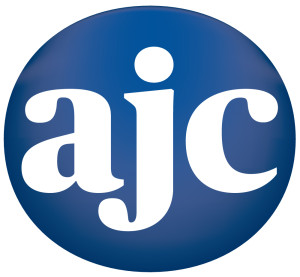AJC EXCLUSIVE: Metropolitan Arts Fund announces grant to Horizon Theatre
February 19th, 2015
 The grants the Metropolitan Atlanta Arts Fund is announcing today to Horizon Theatre Company and Atlanta Celebrates Photography are undeniably modest compared to the $38 million the Robert W. Woodruff Foundation gave the Woodruff Arts Center late last year.
The grants the Metropolitan Atlanta Arts Fund is announcing today to Horizon Theatre Company and Atlanta Celebrates Photography are undeniably modest compared to the $38 million the Robert W. Woodruff Foundation gave the Woodruff Arts Center late last year.
Yet the $180,000 awarded to the Little Five Points theater troupe and the $160,000 given to the photography festival loom large for these long-time, midsized Atlanta arts institutions. And they may represent positive post-recession omens for other small to medium metro arts groups.
The two grants, being revealed exclusively in the Atlanta Journal-Constitution, cap a pilot Arts Capitalization initiative launched by the Arts Fund in 2013 to improve the financial sustainability of Atlanta cultural groups.
Last May, the Arts Fund, part of the Community Foundation for Greater Atlanta, announced an Arts Capitalization grant of $200,000 to the Atlanta Contemporary Arts Center.
Horizon and Atlanta Celebrates Photography were finalists for that award, the Arts Fund’s largest ever to a single organization. Though they did not receive funding initially, the two groups benefited from extensive free training to develop a capitalization plan and a presentation in the mode of a business-investment pitch.
Months after the original announcement, which garnered positive attention inside Atlanta’s arts industry and in the media, the Zeist Foundation, the Arthur M. Blank Family Foundation and the R. Howard Dobbs Jr. Foundation took the lead in providing the additional $340,000.
Leaders of the three foundations “understood that the (capitalization strategy) has great potential for strengthening arts organizations for the longer term, as opposed to a program grant or (funding for) a discreet project,” Arts Fund Director Lisa Cremin told the AJC. “It shows a broader community interest in building the financial health of mature smaller arts organizations.”
The Arts Capitalization initiative came about after a 2011 study found that more than three-quarters of the metro area’s strongest arts groups with annual budgets under $2 million possessed less than three months of liquidity. That placed them at serious risk in the face of an unexpected downturn.
The Arts Fund brought in national experts from the Nonprofit Finance Fund to help educate the finalists, established funders, business leaders and other metro arts stakeholders about how groups can build a strong balance sheet that provides the resources to meet their artistic missions.
Cremin praised Horizon (which operated on a $1.25 million budget last fiscal year) and Atlanta Celebrates Photography ($300,000 annual budget) for progressing in their capitalization plans even without Arts Fund grants.
“It’s great news for the organizations,” Cremin said of the belated awards. “The exciting part of it is that the intense process of planning for capitalization created a readiness for these organizations to move forward.”
A major aspect of Horizon’s plan, for instance, called for it to expand its reach by bringing its work to different venues and audiences. Earlier this month, it was tapped to take over the summer theater series in Piedmont Park, replacing the now-defunct Georgia Shakespeare. Horizon will remount its hit production of “Avenue Q” there in performances June 3-7, then transfer it to Oglethorpe University’s Conant Performing Arts Center for an additional month starting June 12.
Will the Arts Fund grant let Horizon leaders breathe a little easier as they approach these and other growth plans?
Co-artistic/producing director Lisa Adler laughed and admitted she was feeling a combination of excitement and panic.
“There are expectations that come with money,” Adler said. “When you are in the lead group of any new initiative, the pressure is on to succeed.”
Atlanta Celebrates Photography executive director Amy Miller called its grant “an amazing boost.”
“It affords us the opportunity to implement strategies that will help us overcome much of our annual funding vulnerabilities and capacity constraints while strengthening our balance sheet and growing the organization in important ways that could take years to achieve otherwise.”
Cremin said the Arts Fund will monitor the progress of grant winners before planning the Arts Capitalization initiative’s next phase.
“We’re learning from it, too,” she said, “and we are going to continue to inform donors how they can think about this strategy of supporting the arts.”

